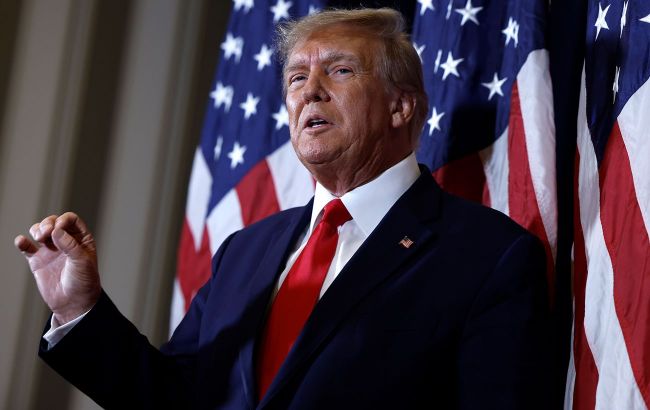Trump suspends US financial aid to other countries
 Photo: US President Donald Trump (Getty Images)
Photo: US President Donald Trump (Getty Images)
US President Donald Trump has signed an order suspending all foreign aid programs for 90 days. During this time, a review will be conducted to determine whether these programs meet the country's political goals, according to the Associated Press.
The agency notes that it is not entirely clear how much aid will be terminated by this order, as Congress has already approved funding for many programs, which should be allocated if funds are not lost.
The executive order signed by Trump states that “foreign aid industry and bureaucracy are not aligned with American interests and in many cases antithetical to American values.”
It “serves to destabilize world peace by promoting ideas in foreign countries that are directly inverse to harmonious and stable relations internal to and among countries.”
As a result, Trump stated that “no further United States foreign assistance shall be disbursed in a manner that is not fully aligned with the foreign policy of the President of the United States.”
Security, strength, prosperity
Last week, Secretary of State Marco Rubio told members of the Senate Foreign Relations Committee during the confirmation hearing that "every dollar we spend, every program we fund, and every policy we pursue must be justified with the answer to three simple questions".
“Does it make America safer? Does it make America stronger? Does it make America more prosperous?” he said.
The executive order signed by Trump leaves Rubio or his designee with the right to make such decisions in consultation with the Office of Management and Budget. The main agencies overseeing foreign aid are the State Department and the US Agency for International Development (USAID).
Trump has long opposed foreign aid, which usually accounts for about 1% of the federal budget. Exceptions are made for extraordinary circumstances, such as providing Ukraine with billions of dollars worth of weapons.
The new president has been critical of the amount of aid provided to Ukraine to strengthen its defense against Russian invasion.
Trump's inauguration and first executive orders
Donald Trump was inaugurated as president of the United States on Monday, January 20, in Washington, D.C.
After entering the White House, the head of state signed some orders.
In particular, he pardoned all his supporters who stormed the Capitol on January 6, 2021, declared a state of emergency in the country's energy sector, introduced stricter controls over illegal migration at the border with Mexico, and introduced other measures.
Read more about Trump's first important executive orders as US president in the RBC-Ukraine article.

